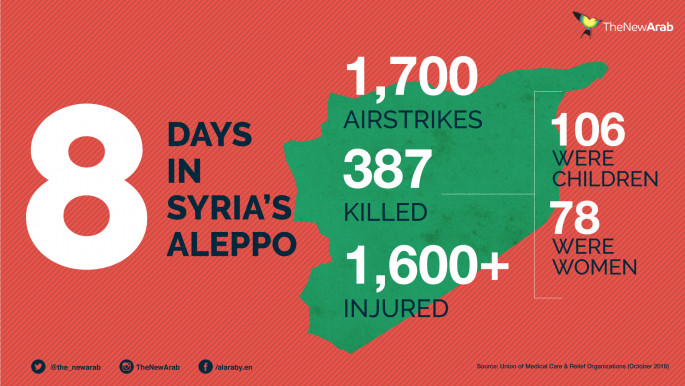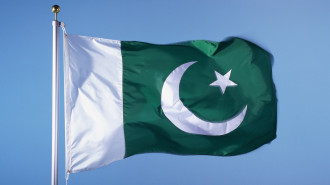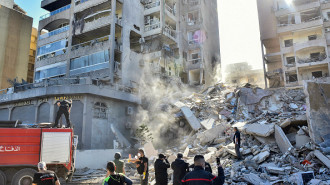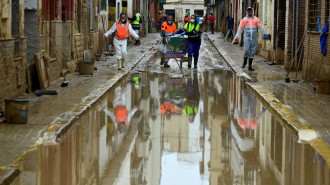Aleppo running out of room to bury the dead
With deadly fighting ongoing and cemeteries full up medical staff in Aleppo are running out of places to bury the dead.
As a result, bodies are increasingly left in the city’s morgues, buried hastily in backyards, or left decaying amid the rubble of buildings targeted by airstrikes, and undiscovered in roadside ditches where they are preyed upon by vermin.
"We have no more room," said Mohammed Abu Jaafar, the head of a local forensic authority in East Aleppo, in comments published by The Associated Press on Sunday, explaining that Aleppo’s main cemetery had reached capacity a year ago, with a consequent facility filling up last week.
Jaafar said that another plot had been secured by medical officials. However, due to ongoing fighting that has seen pro-government troops advance on rebel territory in East Aleppo amid a rising civilian death toll in recent weeks, staff are unable to reach the area safely and dig graves.
"Even if I were to consider mass burials, I don't have the machines to do the digging," said Jaafar.
More than 300 civilians have been killed in the last two weeks in a large-scale advance by pro-regime forces on rebel held East Aleppo.
Meanwhile around 30,000 have fled the area — a 17 square mile enclave where food and basic resources are scarce, healthcare facilities have been crippled by bombardment, and living conditions are amongst the worst anywhere in Syria.
On Sunday, the Syrian Observatory for Human Rights reported that pro-regime forces had gained further ground against rebel groups in East Aleppo, taking control of areas of the al-Maysar neighbourhood.
Pro-regime forces are now said to have captured around half of territory previously controlled by rebel groups in eastern districts of the city.
Speaking this week UN Emergency Relief Coordinator Stephen O’Brien called on the Syrian regime, and its Russian backers to allow humanitarian access into East Aleppo, expressing concern that the area was quickly becoming “one giant graveyard”.
 |
Even if I were to consider mass burials, I don't have the machines to do the digging Mohammed Abou Jafar, local forensic authority head in East Aleppo |
 |
"There are wounded people everywhere. I am afraid I will step on them as I walk,” said Jaafar, speaking to The Associated Press.
Russia said on Saturday that it was prepared for discussions with the United States concerning the withdrawal of all Syrian rebels from Eastern Aleppo.
But senior rebel officials in East Aleppo told Reuters on Sunday that they would not leave the area.
Earlier this week, Khaled Abu Anas, a leading official within Ahrar al-Sham, one of the most powerful rebel factions fighting pro-regime forces in Syria, accused Arab states of abandoning Syrian rebel groups, and standing “against popular revolutions” in a post on Twitter.
Although rebel groups announced a plan to establish a single joint military council this week to defend besieged neighbourhoods, to date their efforts have been unable to stymie regime advances.
Residents of East Aleppo reported that leaflets were dropped by regime planes over the district on Sunday calling on rebels to lay down their arms. Such a phenomenon has become common in the area in recent weeks.
In November The New Arab reported that messages including one stating that Syrian opposition leaders were reclining in “hotels and castles” while rebel gunmen fought for their lives in Aleppo were sent to residents in East Aleppo.
Text messages sent by Syria’s state Telecoms provider this week have also called on rebel fighters to participate in a friendly football match with pro-regime forces.
The UN Security Council is set on Monday to vote on a draft resolution calling for an initial seven-day ceasefire in Aleppo. It remains to be seen whether Moscow will block the resolution.
Elsewhere in Syria on Sunday, the Syrian Observatory for Human Rights reported that over 50 civilians had been killed by purported Russian airstrikes in rebel-held areas of Idlib province.
Russian warplanes, in recent months, have regularly patrolled the skies above the northern Syrian province, which borders Turkey, and have been implicated in attacks on medical facilities and schools in the area.
 |
|
Click to enlarge
|







 Follow the Middle East's top stories in English at The New Arab on Google News
Follow the Middle East's top stories in English at The New Arab on Google News


